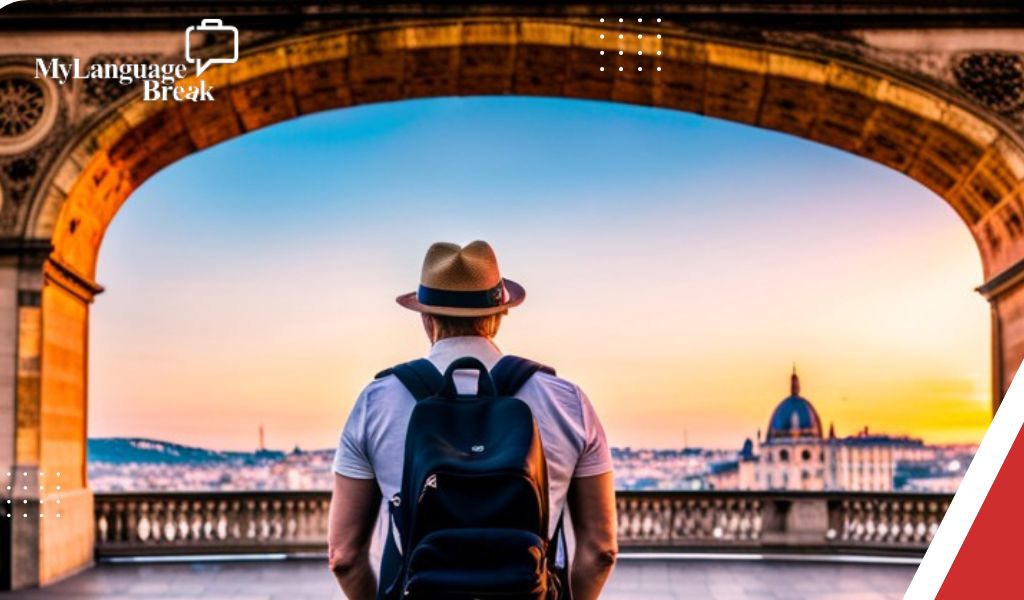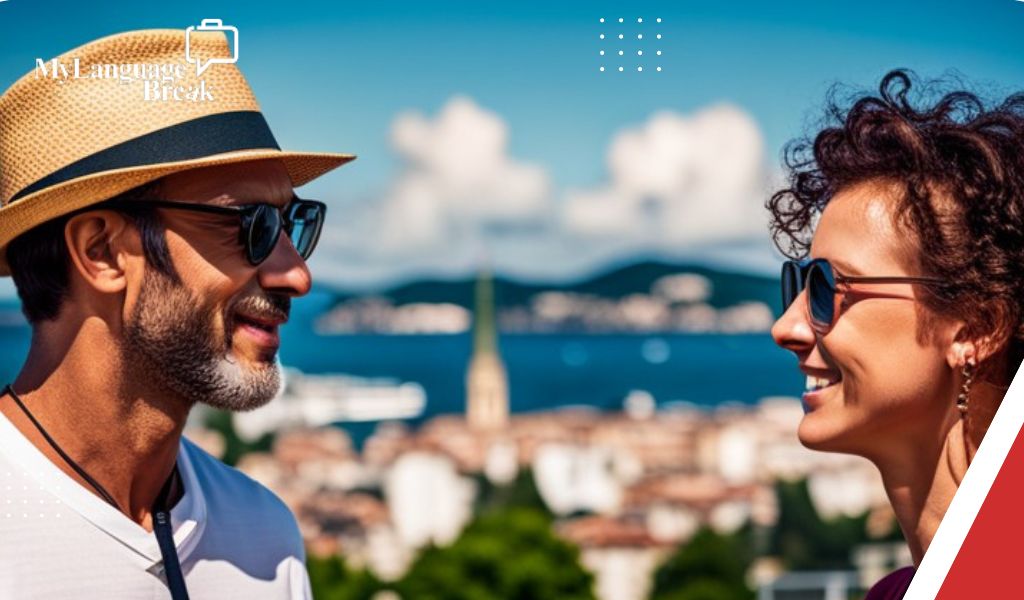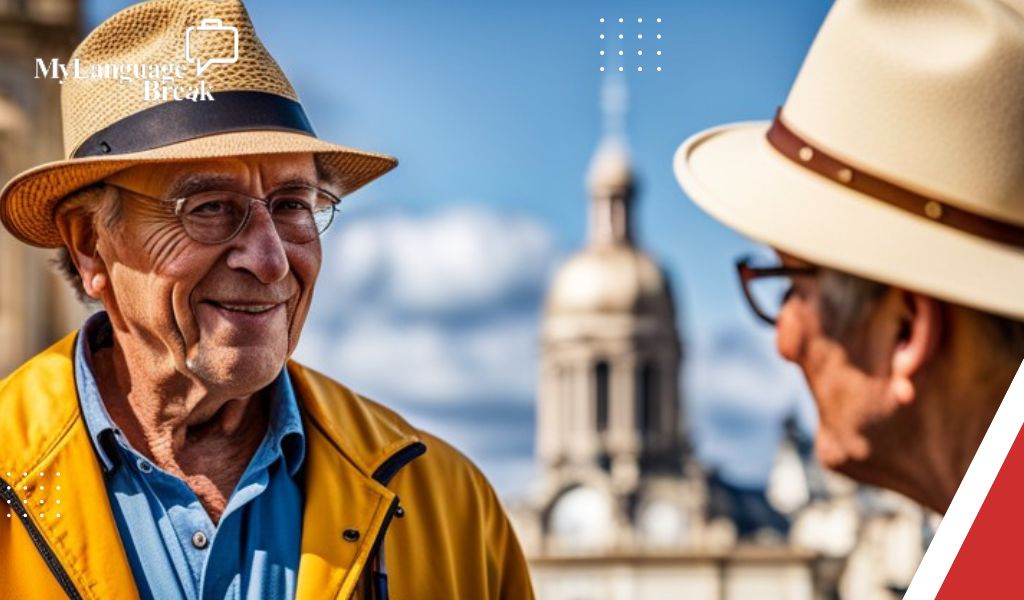The Best French Phrases to Know Before Traveling to France
If you’re planning on traveling to France, it’s important that you know some basic French phrases. After all, you don’t want to be stranded in a foreign country without knowing how to ask for directions or order a meal!
In this blog post, we will teach you the 11 best French phrases to know before traveling to France.
Before heading to France, brush up on your French phrases. While many people in France do speak English, it’s always appreciated when visitors can at least say a few words in the local language.

Here are some essential French phrases to know before your trip:
- Bonjour (Hello)
- Merci (Thank you)
- Oui (Yes)
- Non (No)
- S’il vous plaît/SVP (Please)
- Excusez-moi (Excuse me)
- Je ne comprends pas/Je ne parle pas français (I don’t understand/I don’t speak French)
- Parlez-vous anglais? (Do you speak English?)
- Où est…? (Where is…?)
- Combien ça coûte? (How much does this cost?)
- Je voudrais… (I would like…)
By learning these key French phrases, you’ll be sure to have a smooth and enjoyable trip to France. Bon voyage!
Explain why it’s important to learn these phrases
It is estimated that there are over 274 million French speakers around the world. That makes French the sixth most widely spoken language. Learning even a few basic phrases in French can be helpful when traveling to a French-speaking country or when interacting with French speakers. Here are a few reasons why it’s important to learn these basic phrases:
- It shows respect for the other person’s culture.
- It helps to build rapport and foster communication.
- It can help to prevent misunderstandings.
- It can make the other person feel more comfortable and welcomed.
- It can improve your own ability to communicate in French.
So, whether you’re planning a trip to France or just want to be able to communicate better with your Francophone neighbors, make an effort to learn some basic French phrases.
Your efforts will be appreciated and will go a long way towards fostering communication and understanding.

Listen to audio recordings of native speakers.
In addition to learning the written form of French phrases, it’s also important to learn how to pronounce them correctly. The best way to do this is by listening to audio recordings of native speakers. There are many resources available online and in libraries that can help you with this.
Some things to keep in mind when listening to audio recordings:
- Listen for the correct pronunciation of words and phrases.
- Pay attention to the intonation and stress patterns of words and phrases.
- Try to imitate the way native speakers say the words and phrases.
By listening to audio recordings, you’ll be able to learn the correct way to pronounce French words and phrases. This will help you to be understood when speaking French and will also give you a better understanding of the spoken language.
Practice, practice, practice!
The best way to learn any new language is to practice it as often as possible. If you’re serious about learning French, make an effort to use the phrases you’ve learned in your everyday life.
French Greetings and Polite Phrases
In France, it is considered impolite to not greet someone when you meet them. There are different greetings for different times of day.
For example, bonjour (good morning) is only used until noon, while bonsoir (good evening) is used in the afternoon and evening. When greeting someone, you should always shake their hand and make eye contact.
There are also different ways to say goodbye. Au revoir (until we meet again) is the most formal way to say goodbye, while bonne journée (have a good day) is more informal.
If you are leaving someone’s house, it is polite to say merci beaucoup (thank you very much) and merci pour l’invitation (thank you for the invitation).
When talking to someone, it is polite to use vous instead of tu. Vous is the formal way to say “you” in French, while tu is the informal way.
You should only use tu with people that you know well, such as family and close friends. It is also polite to address people by their title and last name until you are invited to use their first name. For example, if you are talking to a woman, you would say madame (ma’am), while if you are talking to a man, you would say monsieur (sir).

French Phrases for a Basic interaction in French
Learning a few basic French phrases can come in handy whether you’re traveling to a French-speaking country or want to impress a date who’s fluent in the language.
While it’s always best to learn phrases specific to the situation in which you’ll be using them, there are some generals French phrases that can be used in a variety of situations.
Here are a few basic French phrases to get you started:
- Comment ça va? (How are you?)
- Je m’appelle… (My name is…)
- Enchanté(e). (Pleased to meet you.)
- Parlez-vous anglais? (Do you speak English?)
- Je ne comprends pas. (I don’t understand.)
Other Helpful Phrases for Maintaining a French Conversation
- I ‘m sorry – Je suis désolé(e)
- I don’t know – Je ne sais pas
- Do you understand? – Comprenez-vous?
- I don’t agree. – Je ne suis pas d’accord.
- You’re welcome – De rien
- Excuse me (to get attention) – Excusez-moi
- Excuse me (to apologize) – Pardon
- Thank you very much – Merci beaucoup
- I’m hungry. – J’ai faim.
- I need to go to the bathroom. – Je dois aller aux toilettes.
- Pourriez-vous m’aider? – Can you help me?
- Pourriez-vous prendre ma photo/notre photo? – Are you able to take my photo/our photo?
- Parlez lentement, s’il vous plaît. – Speak slowly, please.
- Où est un bon restaurant/un bon café? – Where is a good restaurant/a good café.
- Où est la plage/le centre-ville? – Where is the beach/city center.
- Je cherche le métro/le gare/l’aéroport. – I am searching for the metro/train station/airport.
- Je cherche l’hôtel/l’hôpital/la banque. – I am searching for the hotel/hospital/bank.
These are just a few of the many useful French phrases that you can use to make your trip to France more enjoyable. With a little practice, you’ll be speaking like a native in no time! Bon voyage! (Have a safe journey!)
Do you have any other tips on how best to learn French? Let us know in the comments below! And don’t forget to check out our other blog posts on all things France. À bientôt! (See you soon!)
